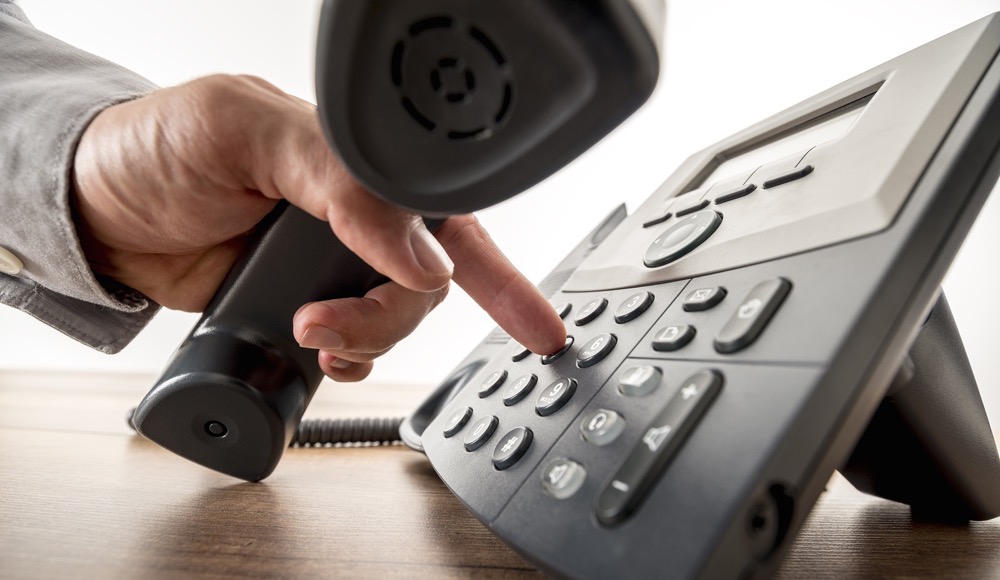Don’t Take the Phone Interview Lightly; Be Prepared for 4 Potential Problems

If you think a phone interview isn’t a “real” interview, you’re sadly mistaken. Phone interviews are generally thought of as screening devices, but they carry a lot of weight. In some cases, they’re just as important as in-person interviews.
When my workshop attendees tell me they have telephone interviews coming up, they’ll often talk about it with a slightly derogatory tone. “It’s just a telephone interview,” they might say. “I hope I get a face-to-face.”
Yes, the face-to-face interview is the next step, but you can’t get there without impressing the interviewer on the other end of the phone.
Generally, during a phone interview, the interviewer is trying to obtain four bits of information from you. Focus on these areas if you really want to get through to the next round:
1. Do You Have the Skills and Experience to Do the Job?
The first of the interviewer’s criteria is one of the easiest to meet. Just think about all the reasons why you’re qualified, and be prepared to highlight them.
For example, say you’re applying for a public relations manager position. You feel the role is perfect for you.
Why is that? It’s because your communications skills are above reproach, as demonstrated by excellent rapport with the media, business partners, and customers. In addition, you’ve written press releases and customer success stories, and you’ve assisted with white papers. You’ve added content to the company’s website that even project managers couldn’t supply. One of your greatest accomplishments is placing more than 50 articles in leading trade magazines.
2. Are You Motivated and Well Liked?
Your former colleagues describe you as amiable, extremely goal-oriented, and one who exudes enthusiasm. That last quality shows your motivation.
You’ve done your research and have decided that this is the company you want to work for. When the interviewer asks why you want to work for the company, you gush with excitement. You’re able to talk about the organization intelligently, and you tell the interviewer you love the responsibilities set forth in the job description – even if you feel a bit awkward doing so.
Through your networking, you’ve learned about the corporate culture and the management team. You tell the interviewer this company sounds a lot like your former company and will be a great fit.
3. Why Did You Leave Your Last Company?
This one may be tough for you. Perhaps you were laid off and you now feel a bit insecure about yourself.
Typically speaking, your answer to this questions will be one of three: You were laid off, you were let go, or you quit. No matter the particular reason, keep your answer brief. Stick to the facts. For example: “My company was acquired, and the company that purchased my previous employer already had someone in the marketing department handling the same duties I did.”
4. What Is Your Salary Expectation?
“So, what are your salary needs?”
The question hits you like a brick. “Excuse me?” you ask.
“What do you expect for salary? What will it take to get you to the next step?” the interviewer asks.
You should answer this question using the following strategy:
- Try to deflect the question.
- If this doesn’t work, ask for the company’s range.
- If this doesn’t work, give the interviewer your range.
- When all else fails, cite an exact figure based on your online research and networking.
The last thing you want to do is forget everything your job coach told you and blurt out, “At my last job, I made $72,000.” The interviewer didn’t ask what you used to make; they asked what you were expecting to make.
But say you do make this mistake. There’s a pause on the other end. After some uncomfortable silence, the interviewer thanks you for your time. If you are deemed suitable for an in-person interview, you’ll be notified within it week.
You know the position hangs in the balance at this moment. You spoke first and said something you can’t take back. You were prepared, but not prepared enough. You didn’t think this interview counted.
You promise you’ll do better at the face-to-face. If you get there.
A version of this post originally appeared on Things Career Related.
Bob McIntosh, CPRW, is a career trainer who leads more than 15 job search workshops at an urban career center.

